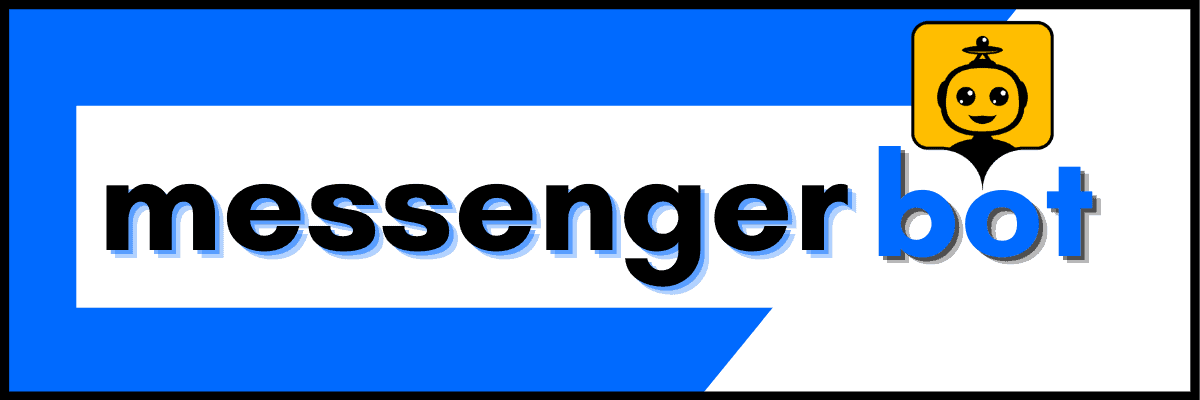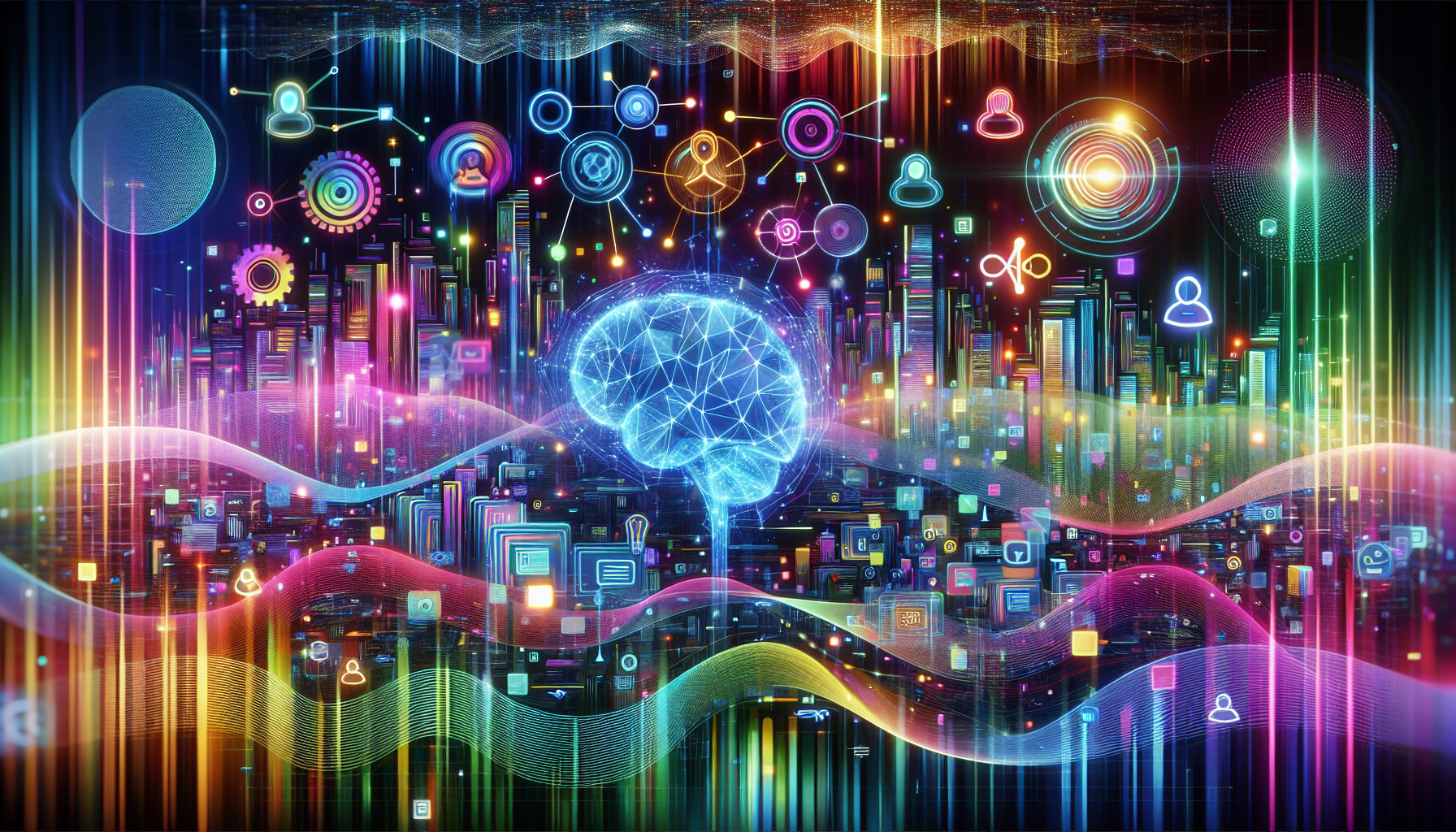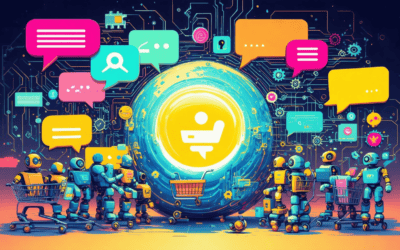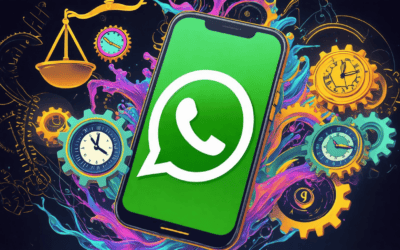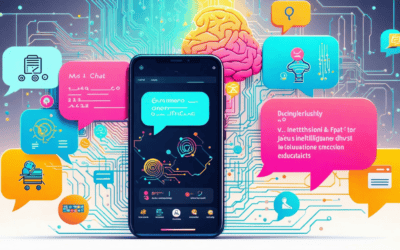In an era where technology is rapidly evolving, the question on everyone’s mind is, how to choose the best live AI chatbot for your needs in 2025? As businesses and individuals alike seek to enhance communication and streamline interactions, understanding the capabilities and functionalities of live AI chatbots becomes essential. This article will delve into the fascinating world of live AI chatbots, exploring their definition, benefits, and the technology that powers them. We will also examine various options, including free AI chat solutions, and provide insights into the smartest AI available today. Furthermore, we will discuss the legal and ethical considerations surrounding AI voice technology, ensuring you are well-informed as you navigate this innovative landscape. Join us as we uncover the criteria for evaluating the best live AI chatbots and highlight top recommendations tailored to your unique needs.
Is there a real AI I can talk to?
Yes, there are several real AI chatbots that you can interact with, designed to provide conversational experiences that mimic human interaction. These chatbots utilize advanced natural language processing technologies to facilitate engaging conversations, making them suitable for users looking to interact with real AI. Here are some notable options:
- D-ID AI: This platform offers a unique AI video chat experience where users can engage in conversations with a digital person. The service allows for a free trial, enabling users to hold up to five chats, each consisting of six back-and-forth interactions. D-ID focuses on creating a more intuitive and human-like experience, making it a popular choice for those seeking engaging AI conversations.
- Replika: Replika is an AI companion designed to engage users in meaningful conversations. It learns from your interactions and can discuss a wide range of topics, making it a personalized experience. Users can download the app for free, with additional features available through a subscription.
- ChatGPT by OpenAI: This advanced conversational AI can answer questions, provide information, and engage in discussions on various subjects. ChatGPT is accessible through multiple platforms, including web and mobile applications, and is known for its ability to generate coherent and contextually relevant responses.
- Mitsuku (Kuki): Mitsuku, also known as Kuki, is an award-winning chatbot that has been recognized for its conversational abilities. It can engage users in casual conversations and answer questions, making it a fun and interactive option.
- Google Assistant and Siri: While primarily virtual assistants, both Google Assistant and Siri can engage in conversational interactions, answer queries, and perform tasks based on user commands. They are widely available on smartphones and smart devices.
Understanding Live AI Chatbots: Definition and Functionality
Live AI chatbots are sophisticated automation tools designed to enhance digital communication by utilizing artificial intelligence to manage and optimize interactions across various channels. These chatbots are engineered to respond intelligently to user comments and messages, streamlining the engagement process without the need for continuous human oversight. Key functionalities include:
- Automated Responses: Live AI chatbots provide real-time, automated responses to users’ inquiries across social media platforms like Facebook and Instagram, as well as on websites via direct integration.
- Workflow Automation: They enable businesses to create dynamic automated workflows that are triggered by specific user behaviors, facilitating tailored interactions that can improve user engagement and satisfaction.
- Lead Generation: Leveraging advanced messaging techniques, these chatbots help businesses generate leads cost-effectively, utilizing interactive and engaging messenger-based marketing strategies.
Benefits of Engaging with a Live AI Chatbot
Engaging with a live AI chatbot offers numerous benefits for both users and businesses. Here are some of the key advantages:
- 24/7 Availability: Live AI chatbots can operate around the clock, providing instant support and information to users at any time, which enhances customer satisfaction.
- Cost Efficiency: By automating responses and interactions, businesses can reduce operational costs associated with customer service while maintaining high-quality engagement.
- Personalized Experiences: Advanced AI chatbots can learn from user interactions, allowing them to provide tailored responses and recommendations based on individual preferences.
- Multilingual Support: Many live AI chatbots can communicate in various languages, making it possible for businesses to reach a diverse global audience.
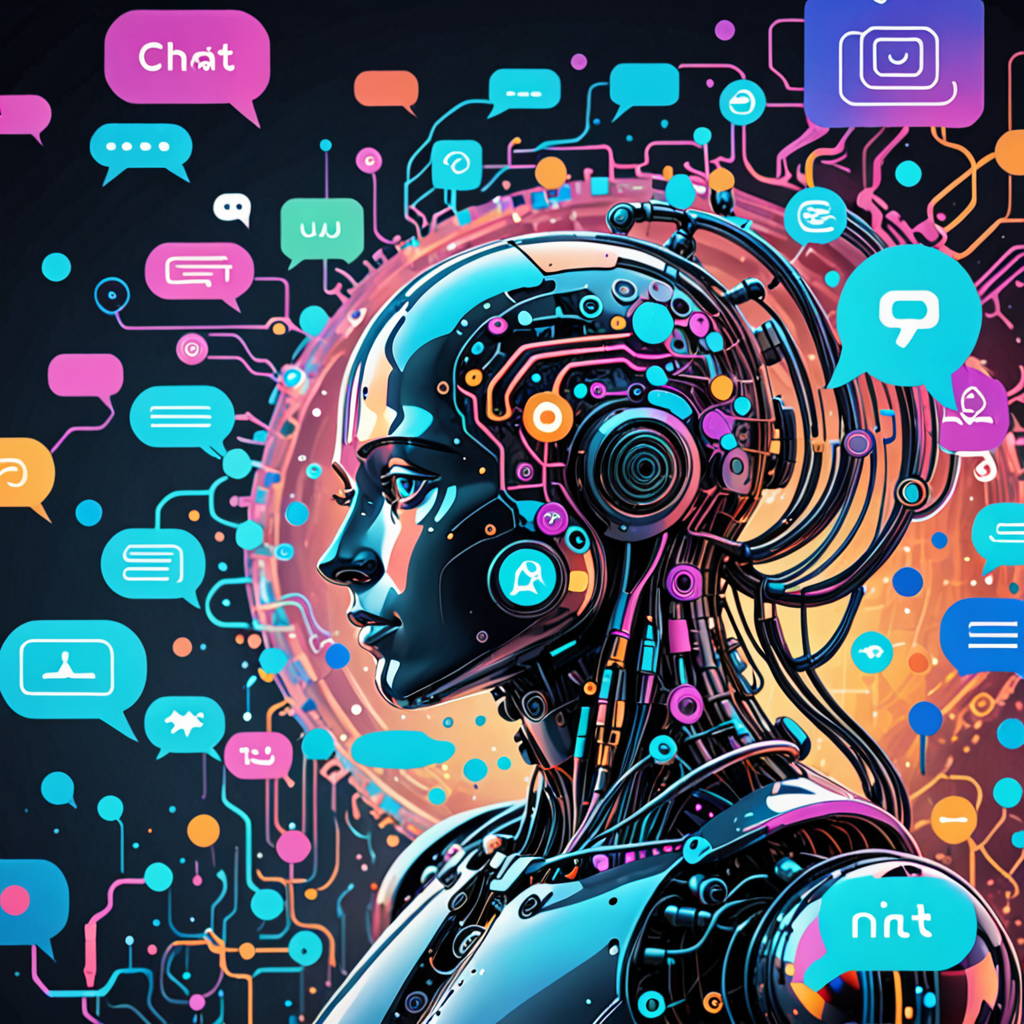
Is there any free AI chat?
Exploring Free Live AI Chatbot Options
Yes, there are several free AI chatbots available that you can use for various purposes. Here are some notable options:
- Perplexity AI: This free AI chatbot is connected to the internet, allowing it to provide real-time information and sources. Its user-friendly interface makes it easy to start a conversation—simply type your question into the “ask anything” box to receive instant responses. Perplexity AI is particularly useful for obtaining factual information and exploring a wide range of topics. Source: ZDNET
- ChatGPT: OpenAI offers a free version of ChatGPT, which is widely recognized for its conversational abilities. While the free version has some limitations compared to the premium subscription, it still provides high-quality responses and can assist with a variety of inquiries, from casual conversation to more complex questions. Source: OpenAI
- Messenger Bot: Facebook’s Messenger platform includes various bots that can engage users in conversation. These bots can provide information, answer questions, and even assist with customer service tasks. While the functionality may vary depending on the specific bot, many are free to use and easily accessible through the Messenger app. Source: Facebook
- Replika: This AI chatbot is designed to be a personal companion, allowing users to engage in meaningful conversations. Replika is free to use, with optional paid features for enhanced experiences. It learns from interactions, making conversations more personalized over time. Source: Replika
These AI chatbots offer a range of functionalities and can be utilized for different needs, from casual chatting to information retrieval. For more insights on how AI chatbots can enhance your customer experience, check out our article on the best AI chatbots.
Comparing Free AI Chatbots: Features and Limitations
When considering free live AI chatbots, it’s essential to evaluate their features and limitations. Each chatbot offers unique capabilities that cater to different user needs:
- Perplexity AI excels in providing real-time information, making it a great choice for users seeking factual data.
- ChatGPT is known for its conversational depth, ideal for users looking for engaging dialogues and assistance with complex inquiries.
- Messenger Bot integrates seamlessly with social media platforms, offering businesses a way to automate customer interactions without incurring costs.
- Replika focuses on personal companionship, providing a unique experience that evolves with user interactions.
While these free options are accessible, they may come with limitations such as reduced functionality or the absence of advanced features found in premium versions. For businesses looking to enhance their customer service, exploring options like customer service automation can provide additional insights into the capabilities of AI chatbots.
What is Chatbot Live AI?
Chatbot live AI refers to the integration of advanced artificial intelligence technologies, such as generative AI, natural language processing (NLP), and machine learning, to create interactive systems that can engage in human-like conversations. These chatbots are designed to enhance customer service by providing real-time responses to inquiries, thereby improving user experience and operational efficiency.
The Technology Behind Live AI Chatbots
Live AI chatbots utilize several key technologies that enable them to function effectively in various environments:
- Natural Language Processing (NLP): This technology enables chatbots to understand and interpret human language, allowing for more fluid and natural conversations. NLP helps in recognizing user intent and context, which is crucial for delivering relevant responses.
- Generative AI: Utilizing generative AI models, these chatbots can create responses that are not only contextually appropriate but also varied, reducing the likelihood of repetitive answers. This capability enhances user engagement by making interactions feel more personalized.
- Machine Learning: Chatbots continuously learn from interactions, improving their responses over time. This adaptive learning process allows them to handle a wider range of queries and provide more accurate information based on previous conversations.
- Integration with Messaging Platforms: Many chatbot live AI solutions can be integrated with popular messaging platforms, such as Facebook Messenger, allowing businesses to reach customers where they are most active. This integration facilitates seamless communication and enhances accessibility.
- 24/7 Availability: Chatbots can operate around the clock, providing immediate assistance to customers regardless of time zones. This constant availability can significantly improve customer satisfaction and retention.
- Data Collection and Analysis: Chatbots can gather valuable data from interactions, which can be analyzed to gain insights into customer preferences and behaviors. This information can inform business strategies and improve service offerings.
Use Cases for Live AI Chatbots in Various Industries
Live AI chatbots are transforming customer interactions across multiple sectors. Here are some notable use cases:
- Retail: In the retail industry, chatbots assist customers with product inquiries, order tracking, and personalized recommendations, enhancing the shopping experience.
- Healthcare: Healthcare providers use chatbots to schedule appointments, provide medical information, and manage patient inquiries, streamlining operations and improving patient engagement.
- Finance: Financial institutions leverage chatbots for customer support, helping users with account inquiries, transaction details, and fraud alerts, thereby increasing efficiency and security.
- Travel: In the travel sector, chatbots facilitate booking processes, provide travel updates, and assist with customer service, making travel planning more convenient.
- Education: Educational institutions utilize chatbots to answer student queries, provide course information, and assist with enrollment processes, enhancing the overall learning experience.
According to a report by Gartner, by 2025, 75% of customer service interactions will be powered by AI, highlighting the growing importance of chatbot live AI in modern business operations. Additionally, a study by IBM found that businesses using AI chatbots can reduce operational costs by up to 30%.
Which is the Best AI Chatbot?
When considering the best AI chatbots for customer service, several options stand out based on functionality, user experience, and integration capabilities. Below is a comprehensive comparison of the top AI chatbots currently available:
- Zendesk Chat
- Features: Offers real-time chat, AI-powered responses, and seamless integration with Zendesk’s customer support platform.
- Best For: Businesses looking for a robust customer support solution with extensive analytics.
- Intercom
- Features: Combines live chat with AI automation, allowing for personalized customer interactions and proactive messaging.
- Best For: Companies focused on customer engagement and retention.
- Drift
- Features: Specializes in conversational marketing, enabling businesses to qualify leads through chatbots.
- Best For: Sales teams aiming to increase conversion rates.
- Tidio
- Features: Integrates chatbots with email marketing and offers a user-friendly interface for small businesses.
- Best For: Startups and small businesses seeking an affordable solution.
- ManyChat
- Features: Focuses on Facebook Messenger bots, allowing businesses to automate conversations on social media.
- Best For: Brands with a strong social media presence.
- Chatfuel
- Features: Enables users to create chatbots for Facebook Messenger without coding, using a visual interface.
- Best For: Non-technical users wanting to build chatbots quickly.
- LivePerson
- Features: Provides AI-driven messaging solutions that enhance customer interactions across various channels.
- Best For: Enterprises needing a scalable solution.
- Freshchat
- Features: Offers AI chatbots, in-app messaging, and a unified inbox for customer interactions.
- Best For: Businesses looking for an integrated customer engagement platform.
- MobileMonkey
- Features: Supports multi-channel marketing automation, including web chat and SMS.
- Best For: Marketers wanting to engage customers across different platforms.
- HubSpot Chatbot
- Features: Integrates with HubSpot’s CRM, allowing for personalized customer interactions based on user data.
- Best For: Businesses already using HubSpot for marketing and sales.
In conclusion, the best AI chatbot for your business will depend on your specific needs, such as customer engagement, lead generation, or integration with existing tools. Each of these chatbots offers unique features that cater to different business models and objectives.
Criteria for Evaluating the Best Live AI Chatbots
When evaluating the best live AI chatbots, consider the following criteria:
- Functionality: Assess the range of features offered, such as automated responses, multilingual support, and integration capabilities.
- User Experience: Evaluate the ease of use for both customers and businesses, including the chatbot’s interface and interaction quality.
- Scalability: Determine if the chatbot can grow with your business needs, accommodating increased user interactions without compromising performance.
- Analytics and Reporting: Look for chatbots that provide insights into user interactions and performance metrics to help optimize customer engagement strategies.
- Cost-Effectiveness: Consider the pricing structure and whether it aligns with your budget while delivering the necessary features.
Top Recommendations for the Best Live AI Chatbot in 2025
As we look ahead to 2025, the following live AI chatbots are highly recommended based on their innovative features and user satisfaction:
- Zendesk Chat: Ideal for businesses seeking comprehensive customer support solutions.
- Intercom: Best for enhancing customer engagement through personalized interactions.
- Drift: Perfect for sales teams focused on lead qualification and conversion.
- ManyChat: Excellent for brands leveraging social media for customer interactions.
- HubSpot Chatbot: Great for businesses already utilizing HubSpot’s ecosystem for marketing and sales.
Choosing the right live AI chatbot can significantly enhance your customer service experience and streamline communication processes. Explore options that align with your business goals and customer needs.

What is the smartest AI right now?
The current landscape of artificial intelligence (AI) is diverse, with several applications and systems leading the charge in terms of sophistication and functionality. Here are some of the smartest AI systems available today:
- Google Assistant: Renowned for its advanced natural language processing capabilities, Google Assistant excels in understanding and responding to both voice and text commands. It integrates seamlessly with various devices, enabling users to perform tasks ranging from internet searches to controlling smart home devices. According to a study by Gartner, Google Assistant is among the top virtual assistants, noted for its contextual awareness and ability to learn user preferences over time (Gartner, 2023).
- OpenAI’s ChatGPT: This AI model is designed for conversational interactions and is capable of generating human-like text based on prompts. ChatGPT has been widely recognized for its versatility in applications, from customer service to content creation. A recent evaluation by OpenAI highlighted its ability to engage in complex dialogues and provide informative responses, making it a leading choice for businesses looking to enhance user engagement (OpenAI, 2023).
- IBM Watson: Known for its powerful data analysis capabilities, IBM Watson utilizes machine learning and natural language processing to derive insights from vast amounts of unstructured data. It is particularly effective in sectors like healthcare, where it assists in diagnosing diseases and personalizing treatment plans. Research published in the Journal of Medical Internet Research emphasizes Watson’s impact on improving patient outcomes through data-driven decision-making (JMIR, 2023).
- Microsoft Azure AI: This platform offers a suite of AI services, including machine learning, cognitive services, and bot services. Azure AI is recognized for its scalability and integration with enterprise applications, making it a preferred choice for businesses looking to implement AI solutions. A report by Forrester indicates that Azure AI’s robust analytics capabilities empower organizations to harness data for strategic decision-making (Forrester, 2023).
- Messenger Bots: While not a standalone AI, Messenger Bots leverage AI technologies to facilitate automated conversations on platforms like Facebook Messenger. These bots can handle customer inquiries, provide recommendations, and enhance user experience through personalized interactions. A study by HubSpot found that businesses using Messenger Bots saw a significant increase in customer engagement and satisfaction (HubSpot, 2023).
In summary, the smartest AI systems today, including Google Assistant, OpenAI’s ChatGPT, IBM Watson, Microsoft Azure AI, and Messenger Bots, each bring unique strengths to the table, making them leaders in the field of artificial intelligence. Their capabilities continue to evolve, driven by advancements in machine learning and natural language processing, ensuring they remain at the forefront of technology.
Innovations in AI Chatbot Intelligence
Innovations in AI chatbot intelligence are transforming how businesses interact with customers. These advancements focus on enhancing the capabilities of live AI chatbots, making them more intuitive and responsive. Key innovations include:
- Contextual Understanding: Modern AI chatbots can now maintain context over multiple interactions, allowing for more meaningful conversations. This capability ensures that users feel understood and valued, significantly improving user satisfaction.
- Sentiment Analysis: By incorporating sentiment analysis, chatbots can gauge user emotions based on their inputs. This allows the chatbot to tailor responses that are empathetic and appropriate, enhancing the overall interaction experience.
- Integration with Other Technologies: Live AI chatbots are increasingly being integrated with other technologies, such as CRM systems and e-commerce platforms. This integration enables them to provide personalized recommendations and support, streamlining the customer journey.
Comparing Smart AI Chatbots: Features and Capabilities
When evaluating the smartest AI chatbots, it’s essential to consider their features and capabilities. Here are some critical aspects to compare:
- Natural Language Processing (NLP): The effectiveness of an AI chatbot largely depends on its NLP capabilities. Chatbots with advanced NLP can understand and respond to user queries more accurately, making interactions smoother.
- Multi-Channel Support: The best AI chatbots can operate across various platforms, including social media, websites, and messaging apps. This versatility ensures that businesses can engage with customers wherever they are.
- Analytics and Reporting: Robust analytics features allow businesses to track user interactions and gather insights. This data is invaluable for optimizing chatbot performance and enhancing customer engagement strategies.
Is it legal to use AI voice?
Using AI voice technology raises several legal considerations that are crucial for content creators and businesses alike. Understanding these legalities is essential to ensure compliance and avoid potential pitfalls.
Legal Considerations for Using AI Voice Technology
When it comes to AI voiceovers, there are key legal aspects to consider:
- Copyright and Intellectual Property: The voice of an individual is regarded as a unique personal attribute. Utilizing an AI-generated voice that closely resembles a specific person, especially a celebrity or public figure, without their consent can lead to potential legal repercussions. This is due to the right of publicity, which protects against unauthorized commercial use of an individual’s likeness, voice, or persona.
- Licensing Agreements: If you intend to use AI voice technology, it is crucial to review the licensing agreements associated with the AI software. Many platforms provide AI voice generation services under specific terms that may require attribution or prohibit commercial use without a proper license.
- Fair Use Doctrine: In some cases, the use of AI-generated voices may fall under the fair use doctrine, particularly for commentary, criticism, or educational purposes. However, this is a nuanced area of law, and it is advisable to consult with a legal expert to assess whether your specific use qualifies as fair use.
- Ethical Considerations: Beyond legality, consider the ethical implications of using AI voices. Misleading audiences by using a voice that mimics a well-known personality without disclosure can damage credibility and trust.
- Regulatory Landscape: As AI technology evolves, so does the regulatory landscape. Stay informed about emerging laws and regulations regarding AI and intellectual property, as these can impact the legality of using AI voiceovers in your content.
Ethical Implications of AI Voice in Chatbots
In addition to legal considerations, the ethical implications of using AI voice technology in chatbots must be addressed. Here are some critical points:
- Transparency: Users should be informed when they are interacting with an AI voice rather than a human. This transparency fosters trust and enhances user experience.
- Misrepresentation: Using AI voices that imitate real individuals without proper disclosure can lead to misrepresentation. This practice can undermine the authenticity of the interaction and damage brand reputation.
- Data Privacy: Ensure that any data collected during interactions with AI voices complies with data protection regulations. Users should have control over their data and be informed about how it is used.
- Accessibility: AI voice technology can enhance accessibility for users with disabilities. However, it is essential to ensure that the technology is inclusive and serves all user demographics effectively.
In summary, while using AI voice technology can enhance user engagement, it is vital to navigate the legal and ethical landscape carefully. Always seek permission when necessary, adhere to licensing agreements, and stay updated on relevant laws to avoid potential legal issues.
Live AI Chatbot Apps: Enhancing User Experience
Live AI chatbots have transformed the way businesses interact with customers, providing instant support and personalized experiences. By integrating advanced AI technologies, these applications enhance user engagement and streamline communication processes. Below, we explore the essential features of the best live AI chatbot apps and the future trends shaping their development.
Features of the Best Live AI Chatbot Apps
The most effective live AI chatbot apps incorporate a variety of features that cater to user needs and improve overall interaction quality. Key functionalities include:
- Automated Responses: These apps utilize AI to deliver real-time, automated replies to user inquiries, ensuring prompt communication across platforms like Facebook and Instagram.
- Workflow Automation: Businesses can create dynamic workflows that respond to specific user actions, enhancing the personalization of interactions.
- Multilingual Support: The ability to communicate in multiple languages allows businesses to cater to a global audience, improving accessibility and user satisfaction.
- Analytics and Insights: Comprehensive analytics tools help businesses track user interactions and engagement metrics, enabling continuous improvement of chatbot performance.
- Integration Capabilities: Seamless integration with existing systems, such as e-commerce platforms, enhances functionality and user experience.
For instance, Messenger Bot excels in these areas, offering robust features that streamline customer interactions and improve service efficiency. You can learn more about its capabilities on the Messenger Bot Features Page.
Future Trends in Live AI Chatbot Applications
The landscape of live AI chatbots is continuously evolving, with several trends expected to shape their future:
- Increased Personalization: Future chatbots will leverage machine learning to provide even more personalized experiences, adapting responses based on user behavior and preferences.
- Enhanced Natural Language Processing (NLP): As NLP technology advances, chatbots will better understand and respond to complex queries, making interactions feel more human-like.
- Integration of Voice Technology: The incorporation of voice recognition will allow users to interact with chatbots through voice commands, expanding accessibility and convenience.
- Focus on Security and Privacy: As data privacy concerns grow, chatbot applications will prioritize secure interactions, ensuring user data is protected.
- AI-Driven Insights: Future chatbots will provide deeper insights into customer behavior, helping businesses refine their strategies and improve service delivery.
These trends indicate a promising future for live AI chatbots, enhancing their role in customer service and engagement. For more insights on how AI chatbots are revolutionizing customer support, check out our article on the Best AI Chatbots.
